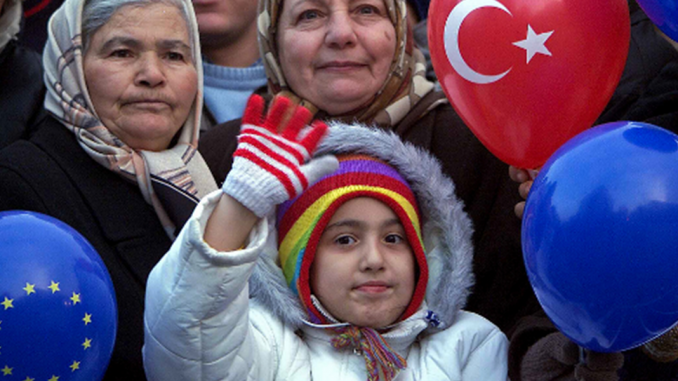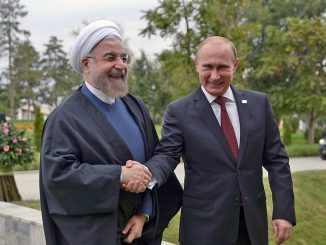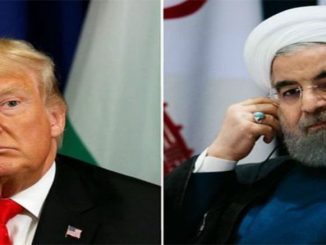
After the European Parliament had voted in favor of a non-binding resolution, calling on the EU Commission and national governments to freeze the talks on Turkey’s European Union membership, the Turkey-EU tense relations became even worse.
Turkish-EU relations strained
In fact, the relations between Turkey and the EU have already been strained since the July 15 failed coup attempt in Turkey and the cold reaction from the West toward the brutal military move of the putschists, that killed over 300 people and injured more than 2,100. Later, Turkish President Recep Tayyip Erdoğan even accused the head of United States Central Command, chief General Joseph Votel of “siding with coup plotters,” (after Votel accused the Turkish government of arresting the Pentagon’s contacts in Turkey).
Commenting on the EP vote against Turkey’s EU accession talks, President Erdogan said, ‘We have made clear time and time again that we take care of European values more than many EU countries, but we could not see concrete support from Western friends … None of the promises were kept’. Turkey to find alternatives for the EU membership. “Turkey should not be “fixated” on the idea of joining the European Union and should look at other opportunities, such as the Russia-led Shanghai Pact,” President Recep Tayyip Erdoğan said.
Turkish-Russian Rapprochement
Since suffering a collapse in relations in November 2015, after Turkey downed a Russian jet after a third alleged airspace violation, Moscow and Ankara have found common ground in their disillusionment with the U.S. in Syria. In the last two weeks, the pair have brokered an evacuation deal that has seen thousands leave the besieged Syrian city of Aleppo. They are now working toward new Syria peace talks together without the involvement of the U.S. or the United Nations in Astana, the Kazakh capital.
Turkey’s ties with neighboring countries boosted
However, over the last few days, there has been much activity in Turkey’s foreign relations with its neighboring countries. In fact, Turkey has recently received high-ranking officials from its neighboring countries, including the Turkish Republic of Northern Cyprus, Malta, Albania, Georgia, Slovenia, Tatarstan, Moldovia, and the Czech Republic.
-
Turkish Republic of Northern Cyprus
During these visits, Turkey sought to boost its relations with its neighbors to make for the gap resulting from the EU-Turkey strained relations. According to the Turkish Presidency official website, Speaker of the Republican Assembly of the Turkish Republic of Northern Cyprus Sibel Siber visited Turkey on Dec. 24. President Recep Tayyip Erdoğan received Sibel Siber, at the Haliç Congress Center in Istanbul.
-
Albania
Balkan Insight reported that Albanian President Bujar Nishani visited Turkey on Dec. 22, where he was received by Turkey’s President in Ankara.
Turkey’s President has once again urged Albania to fight against so-called “Gulenists”, known in Turkey as the FETO organization, during the Albanian President’s visit to Ankara.
President Nishani gave a warm speech on the strong ties between the two peoples. He repeated that Albania condemned the failed coup in Turkey on July 15 – which Ankara blames on Gulen – while after a meeting with the speaker of parliament, İsmail Kahraman, he laid flowers on the spot where the Turkish parliament was attacked during the coup.
-
Malta
On December 21, Speaker of Malta House of Representatives Anġlu Farrugia visited Turkey and was received by the Turkish president at the Turkish Presidential Complex, according to the Turkish Presidency official website.
-
Georgia
Also, Georgia’s Prime Minister visited Turkey on Dec. 20, where he met with President Recep Tayyip Erdogan, according to Georgia Today.
As a part of his official state visit to Turkey, Georgia’s Prime Minister, Giorgi Kvirikashvili, met with the President of Turkey, Recep Tayyip Erdogan on Tuesday, December 20th.
The officials discussed bilateral cooperation in politics, trade, economy, transport, energy, arts and culture and agreed to further boost ties between the two countries.
Particular attention was paid to the issues of regional security and need to ensure peace and stability in the region.
Prime Minister of Georgia once again expressed support and solidarity to the people and authorities of Turkey for the recent series of terrorist attacks.
“Such violence should be opposed by the entire civilized world. Georgia stands solidly by its friends in this process,” President Kvirikashvili said.
-
Slovenia
Also, Slovenian President Borut Pahor visited Turkey and met with President Erdogan on Dec. 15, according to STA. The Visit was dedicated to Strengthening Trust. President Borut Pahor called for a strengthening of dialogue with Turkey after talks with Turkish President Recep Tayyip Erdogan. “Me, Slovenia, and, I believe, most of the EU do not want the lost trust between Brussels and Ankara to bring relations to the point where Turkey’s European path were suspended or even abandoned,” he said.
-
Tatarstan
President Minnikhanov of Tatarstan visited Turkey on Dec. 14 and was received by the Turkish president at the Presidential Complex, according to the Turkish Presidency official Twitter account.
Moreover, Turkish Prime Minister Binali Yıldırım attended the Turk-Tatar Business Forum in Kazan, the capital of the Russian autonomous region. On Dec. 7, Yildirim said Ankara will increase investments in Russia’s Republic of Tatarstan.
“With the recovery of relations between Turkey and Russia, investments in Tatarstan will increase and trade will grow,” he said, according to Anadolu Agency.
“For a long time, we have been the most active foreign investor country in the region,” he added.
-
Moldova
Moldovan Deputy PM Calmic also visited Turkey and met with the Turkish president on Dec. 14 according to the official website of the Turkish Presidency.
President Recep Tayyip Erdoğan received Deputy Prime Minister and Minister of Economy of Moldova Octavian Calmic at the Presidential Complex uring the Moldovan PM’s official visit to Turkey for boosting bilateral relations.
-
The Czech Republic
Furthermore, Foreign Minister of the Czech Republic Lubomir Zaoralek visited Turkey on Dec. 13 according to the official website of the Turkish Ministry of Foreign Affairs.
Foreign Minister Lubomir Zaoralek of the Czech Republic paid an official visit to Turkey on 13 December 2016. This visit also provided an opportunity for the Czech Republic to display its solidarity with Turkey after the coup attempt. In the meetings, bilateral relations as well as current regional and international issues were discussed. Speaking at the joint press conference with Foreign Minister Zaoralek, Foreign Minister Çavuşoğlu stressed that there is mutual will to strengthen bilateral relations and cooperation in the international arena, and stated that economic cooperation and trade volume should also be increased.
What is the future of Turkey’s relations with the West?
The relations between Turkey and the Western countries as well as the USA have been tested in recent times about their different views on a number of issues including the handling of the post-July 15 coup challenges on the Turkish arena. Turkey was criticized for the measures which the Turkish government took after the failed coup on July 15. However, Turkey was deeply shocked at the lukewarm reactions of the Western countries towards the failed putsch attempt, where the voices of Western media as well as officials were very high in criticizing the Turkish post-coup measures against putschists.
Also, there were differences on the US-Turkey approaches to ISIS. Turkey is a partner in the coalition against ISIS and since July 2015 allows the United States to use Incirlik Air Base, near Adana, to bomb ISIS. Yet tensions between the two governments stem from the difference of treatment of the People’s Defence Units (YPG), the military branch of the Syrian Kurdish Democratic Union Party (PYD), which is supported by the USA.
The question is: What is the future of Turkey’s relations with the Western world in light of the latest regional and international developments, including the rapprochement between Turkey and Russia, and the access of Donald Trump to power in the United States?



